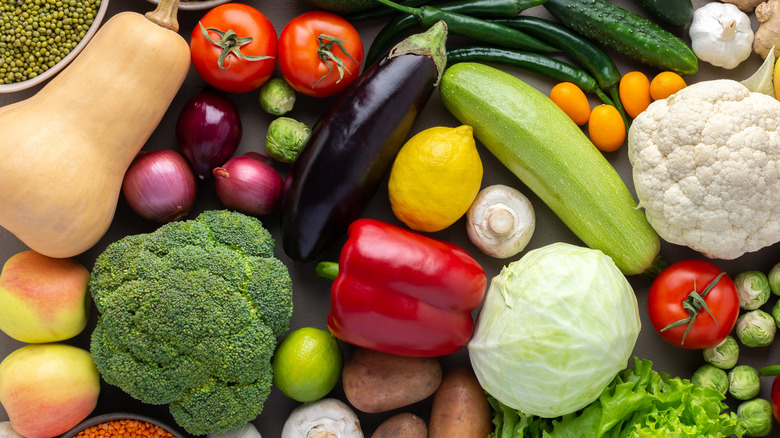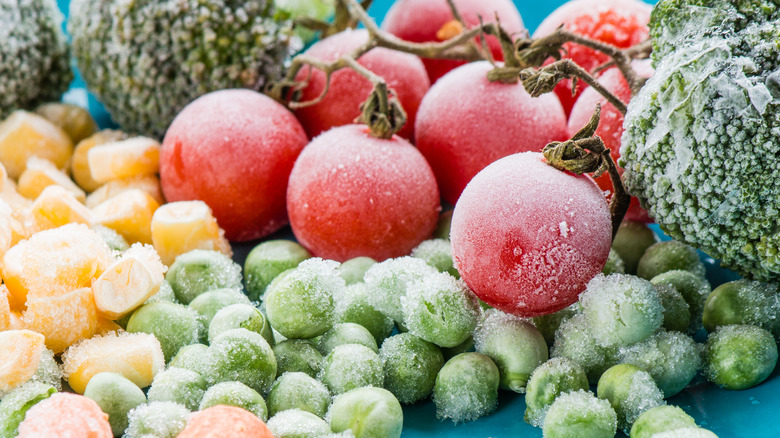Frozen Vegetables Versus Fresh Vegetables: Which Is More Nutritious?
You probably don't have to be told that adding a variety of vegetables to your diet is a healthy choice. You may prefer fresh veggies because they are ready to eat or prepare, and you may think they taste better than frozen. With fresh vegetables, you don't have to worry about any extra additives, like sugar or salt, that could be included (via Healthline).
While there are advantages to buying fresh veggies, they can cost more than frozen. It may also be difficult to find certain fresh veggies depending on the time of year or where you live. In addition, frozen vegetables tend to last longer than fresh ones. In fact, National Center for Home Food Preservation points out that frozen vegetables can last anywhere from eight to 12 months. While there are obvious pros and cons for fresh and frozen veggies, is there a difference between the two when it comes to nutritional value?
Frozen vegetables are a nutritious option
Frozen vegetables go through what is called a blanching process after they are picked. Eating Well reports that they are picked when they are at their "peak ripeness," meaning they are nutrient-rich at this time. After being picked, they are blanched, a process that involves using hot water or steam to destroy bacteria and other compounds that cause them to break down. After they are blanched, they are frozen.
Some vegetables are more likely to lose some vitamins B and C during the blanching process, according to a 2007 review published in the Journal of the Science of Food and Agriculture. That said, most research indicates that the freezing process retains most nutrients in vegetables. In fact, a 2017 study published in the Journal of Food Composition and Analysis found no significant differences in vitamins between fresh and frozen broccoli, cauliflower, corn, green beans, green peas, spinach, blueberries, and strawberries. Furthermore, in most of the cases where nutrients were different, the frozen vegetables contained more nutrients than fresh vegetables that had been refrigerated for five days.


